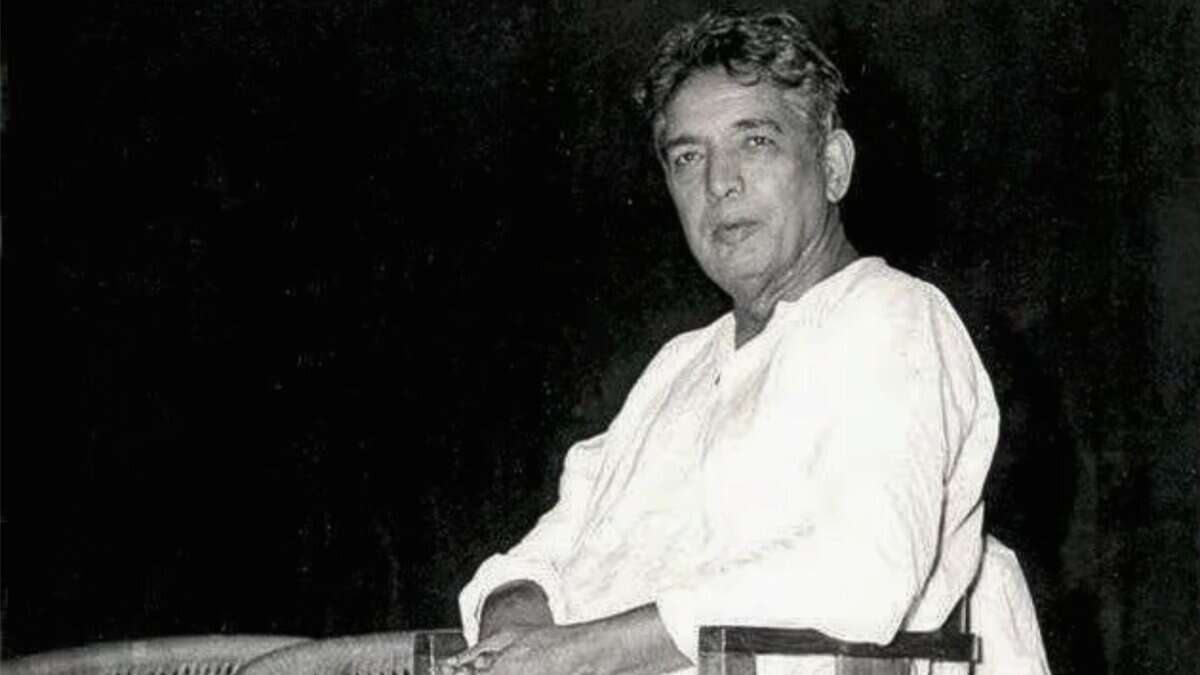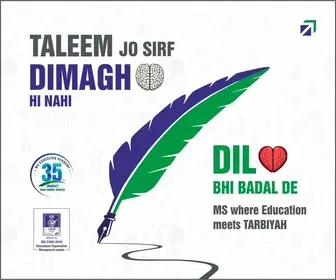
Kaifi Azmi was the King of Romance. Kaifi Azmi, Sahir Ludhianvi and Shakeel Badayuni formed a triumvirate of romantic poets-lyricists who dominated the Golden Era of Hindi Cinema. A part of the rare class of Urdu poets with social consciousness, Kaifi Azmi was a staunch Nehruvian, like Sahir Ludhianvi, Shakeel Badayuni, and others of his ilk. He became part of the Taraqqi-Pasand Tehreek, or Progressive Writers Movement, and was a Communist Party cardholder.
From Mushairas to Movies
Soon after Independence, many Urdu poets turned towards the world of Hindi Cinema. Urdu poets brought gravitas to the lyrics of Hindi film songs. So did Kaifi Azmi, leaving an indelible mark. May 10 marks his 23rd death anniversary.
Born Akhtar Hussain Rizvi on January 14, 1919, in Mizwaan village of Azamgarh district in Uttar Pradesh, he showed early signs of flair for Urdu poetry. At the age of 11, he composed a ghazal:
Itna to zindagi mein kisi ki khalal pade
Hasne se ho sukun, na rone se kal pade.
He recited it at a Mushaira in Bahraich and went on to choose the taqqalus, Kaifi Azmi, after Azamgarh. Recognising the spark in him, his father arranged for an Ustad, for Islah, to polish and firm up his poetic talent.
The Hyderabad connection
Kaifi Azmi had a Hyderabad connection, as well. His trademark persona was wearing a starched kurta-pyjama, smoking unfiltered Charminar cigarettes. Sarojini Naidu was familiar with his work. In fact, she advised Kaifi not to present his couplets in tarannum, but to recite them.
At a Mushaira in Hyderabad in 1947, he recited his acclaimed Nazm, Aurat. It cast a spell on his fan, Shaukat Khanam, who went on to break her matrimonial engagement in order to marry Kaifi Azmi. The Nazm was a hit, and it won him his life-partner.
Aurat challenged patriarchy in those times:
Tere qadmon mein hai firdaus-e-tamaddun ki bahaar
Teri nazron pe hai tehzeeb-o-taraqqi ka madaar
Teri aaġhosh hai gehvara-e-nafs-o-kirdaar
Tabakai gird tere wahm-o-taayyun ki hisaar
Kaund kar majlis-e-ḳhalwat se nikalna hai tujhe
Uth meri jaan, mere saath hi chalnaa hai tujhe.
And, literally, Shaukat stood up and walked away from Hyderabad along with Kaifi, who then moved to Mumbai.
Literary legacy
Aurat, Daera, Sarmaaya, Awara Sajde, Kaifiyaat and Doosra Banwas are among his acclaimed works.
Daera has a lyrical charm:
Jism se rooh talak ret hi ret
Na kahin dhoop, na saaya, na saraab
Kitne armaan hain kis sehra mein
Kaun rakhta hai mazaaron ka hisaab
Nabz bujhti bhi, bhadakti bhi hai
Dil ka maamul hai ghabrana bhi
Doosra Banwas gives the best expression to the composite Indian culture. In fact, December 6, 1992, was a black day, when it was targeted and torn down by razing the Babri Masjid.
Kaifi Azmi gave poetic vent to his feelings with Doosra Banwas, or Second Exile for Lord Ram, when confronted with barbarism in the name of devotion. It is a powerful indictment of those unleashing terror and gruesome violence, all in the name of Lord Ram.
Raqs-e-deewangi aagan mein jo dekha hoga
6 December ko Shri Ram ne socha hoga
Itne deewaane kahaan se mere ghar mein aaye
Jag-magaate the jahaan Ram ke qadmon ke nishaan
Pyaar ki kahkashaan leti thi angdaai jahaan
Mod Nafrat ke usi rahghusar mein aayee
Dharm kya unka thaa, kya Zaat thi, yeh jaantaa kaun
Ghar na jalta to unhen raat mein pehchaanta kaun
Ghar jalaane ko mere log jo ghar mein aaye.
Kaifi Azmi wraps it up powerfully:
Paun Sarju mein abhi Ram ne dhoye bhi na the
Ki nazar aaye wahaan khoon ke gehre dhabbe
Paun dhoye bina Sarju ke kinare se uthe
Ram ye kehte hue apne dware se uthe
Rajdhani ki faza aai nahin raas mujhe
6 December ko mila doosra banbas mujhe
Voice of a Nehruvian conscience
Essentially an Urdu poet, Kaifi Azmi moved to Hindi cinema where he gave poetic articulation to the Nehruvian political commitment, social and cultural ethos, and philosophical values. Choosing the popular medium of Hindi Cinema and turning into a lyricist immortalised him.
Pandit Jawaharlal Nehru was shattered by the Sino-Indian War in 1962, which he described as the Great Betrayal. Kaifi Azmi responded with a stirring song for Chetan Anand’s Haqeeqat in 1964:
Kar chale hum fida jaan-o-tan saathiyon, ab tumhaare hawale watan saathiyon.
Other moving songs from the same film include:
- Ho ke majboor mujhe, usne bhulaya hoga, zeher chupke se dawa jaan ke khaya hoga
- Main yeh soch kar uske dar se utha tha ke woh rok legi, mana legi mujh ko
Perhaps his best tribute to Nehru was his song in Naunihal (1967):
Meri awaz suno, pyaar ka raaz suno.
King of Romance in cinema
Kaifi Azmi will be best remembered as the King of Romance with his songs in:
- Shama and Shola Aur Shabnam (1961)
- Do Dil and Faraar (1965)
- Anupama and Akhri Khat (1966)
- Naunihal (1967)
He wrote the script and dialogues in verse for Heer Ranjha (1970), a unique cinematic effort.
Songs like:
- Jeet hi lenge baazi hum-tum, khel adhura choote na
- Jaane kya dhoondti rehti hain yeh aankhen mujh mein from Shola Aur Shabnam created a magical impact.
Among his all-time hits are songs for Shama (1961), all sung by Suraiya:
Mast aankhon mein sharaarat, kabhi aisi to na thi, yunhi sharmaane ki aadat.
Another gem:
Dhadakte dil ki tamannahon mera pyaar ho tum, mujhe qaraar nahi jab se beqaraar ho tum.
A heart that felt deeply
Har roz haseeno ka deedar nahi hota
Yeh Tur ka jalwa hai, har baar nahi hota
(Tur is an allusion to Mount Sinai, where Moses received the Ten Commandments.)
Aap se pyaar huva jata hai / khel dushwaar huva jata hai
Dil jo har qaid se ghabrata tha / khud giraftaar huva jata hai
Tum ne kyon pyaar se dekha mujho / dard bedaar huva jata hai
Is tamannah mein ke tum doge saza / dil gunahgaar huva jata hai
Few poets can be as simple and direct as Kaifi Azmi.
Songs of pain and poignancy
Oh beqaraar dil, ho chuka hai mujh ko aansuon se pyaar from Kohra (1964) has rare poignancy.
Tera husn rahe mera ishq rahe, to yeh subah-o-yeh shaam rahe na rahe
Man mora naache, tan mora nache in Do Dil (1965) are among his finest.
Equally moving is:
Pyaar ki dastaan tum suno to kahe in Faraar (1965).
The pinnacle: Anupama (1966)
Anupama remains a high point in Kaifi Azmi’s career.
Kuch dil ne kaha, kuch bhi nahi is among the greatest songs ever written. It brings to life the character of Sharmila Tagore’s protagonist:
Dil ki tasallee ke liye, jhooti chamak, jhoota nikhar
Jeevan to suna hi raha, sabh samjhe ayee hai bahaar
Kaliyon se koyee poochhta, hasti hain woh ya roti hain
Aise bhi baaten hoti hain.
Other unforgettable songs include:
- Ya dil ki suno duniya waalon
- Bheegi-bheegi faza
- Kyon mujhe itni khushi de di, ke ghabrata hai dil.
Aur kuch der tehar, aur kuch der na jaa in Akhri Khat (1966) is quintessentially romantic.
Kaifi’s dream lives on
Kaifi Azmi gave poetic expression to deep feelings of pain and pathos. He had a dream, which he unveiled in his poetry and philosophy. This is what immortalises the work of Kaifi Azmi.


